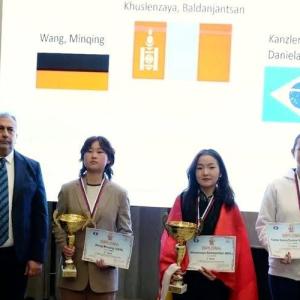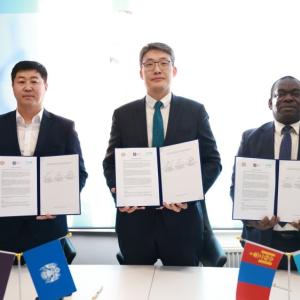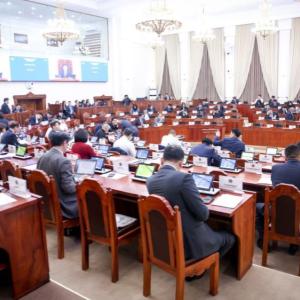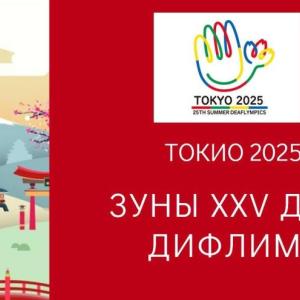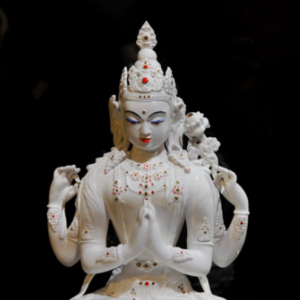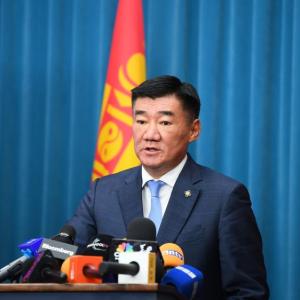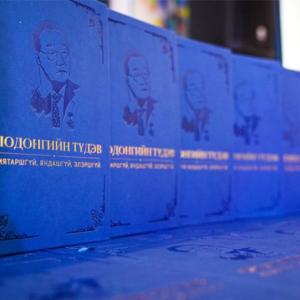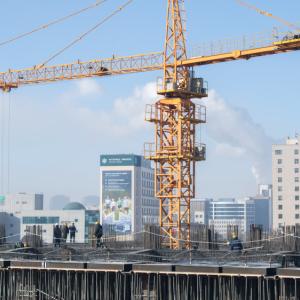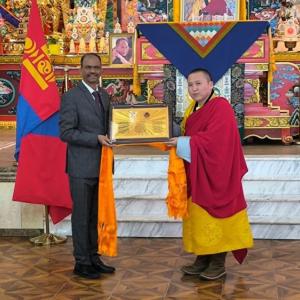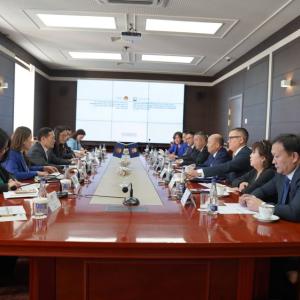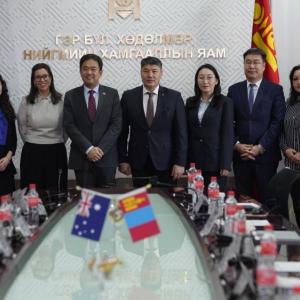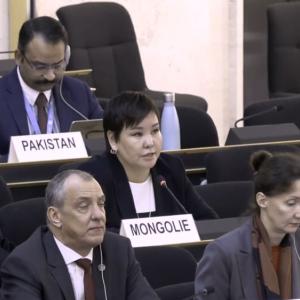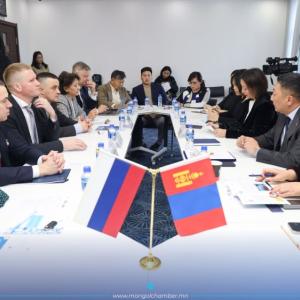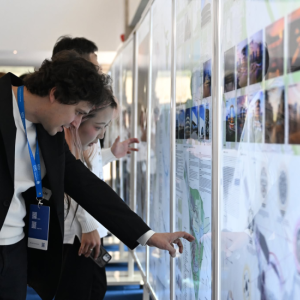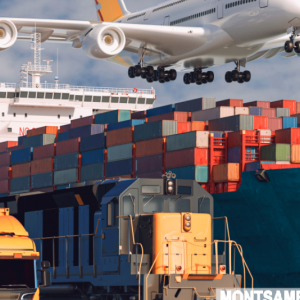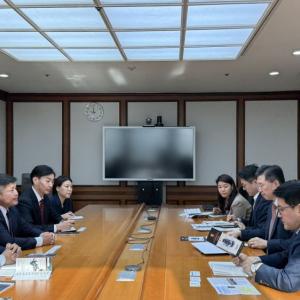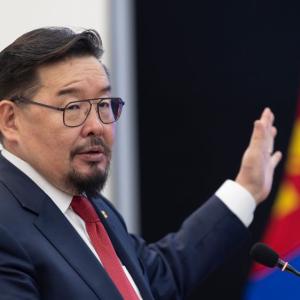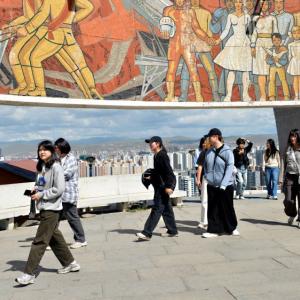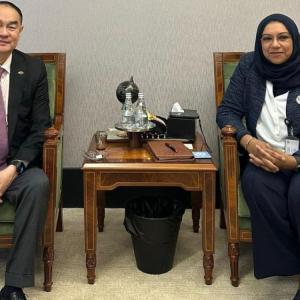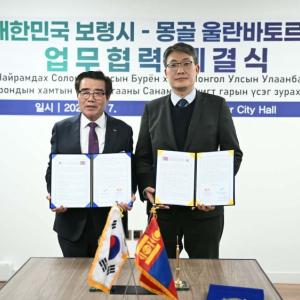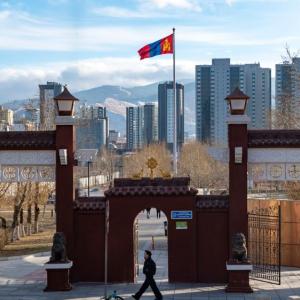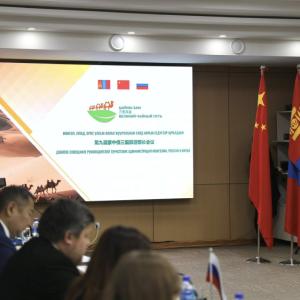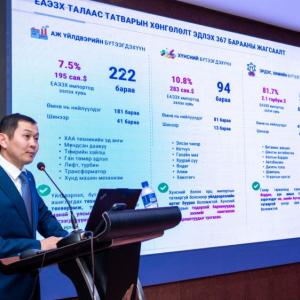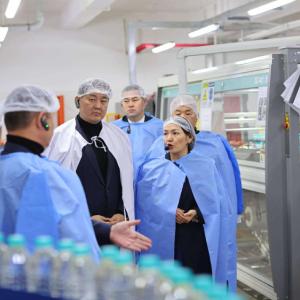Congress of Mongolists: The Period of the Mongol Empire is the Most Important Stage for the Formation of the Eurasian Civilization
Society
Ulaanbaatar, August 12, 2023 /MONTSAME/ “The period of the Mongol Empire is the most important stage for the formation of the Eurasian civilization. The Mongol Empire contributed to the development of ethno-cultural processes in Eurasia thanks not only to trade but also to cultural exchanges, leasing of technologies, and intellectual interaction between the peoples of Eurasia, as well as the synthesis of nomadic and sedentary civilizations,” underscored Dr. Oleg Lushnikov, Director of the Center for Eurasian Studies of Russia in his presentation “The Great Mongol Empire as the World-System of the Middle Ages and Its Contribution to the Foundation of Eurasian Integration” at XII International Congress of Mongolists in Ulaanbaatar, Mongolia.
“The period of the Mongol Empire is the most important stage for the formation of the Eurasian civilization. It was a very large-scale integration process covering the entire period of Antiquity and the Middle Ages. For us, it is also the foundation for formulating certain basic principles of the Eurasian integration in the 21st century. At present, the world-system approach is the most promising methodology for describing large-scale historical processes, for identification and explanation of the patterns of economic and political cycles. Moreover, it must be mentioned that this paradigm has all the prospects to use a rigorous apparatus of exact sciences for constructing mathematical models of systems of different levels – from mini-systems to the global world-system.”

“The world-system is a set of systems of societies united by close economic ties, acting as specific evolving units, but not always merged into a particular political formation. Trade communications connect different regions and cultures, and form a common macroeconomic area. Even more changes occurred after the crusades and the rise of the Great Mongol Empire in the XIII century. Thus, we can speak about the creation of the "Eurasian world-system ".
“The Mongols formed a largest ancient network of trade and economic routes from China to Europe, the Silk Road. They contributed to the growth of transcontinental trade, the influx of innovations in Europe, and the inclusion of India in closer relations with other parts of the world-system (due to the Islamization in the era of the Great Moghuls and the growth of the East-West spice trade). The Pax Mongolica crisis and the disintegration of the Mongol Empire resulted eventually from the Black Death pandemic and the formation of the Ottoman Empire that had blocked the Levantine spice trade. Those factors facilitated the search for sea routes to India and the development of new technologies and mercantilism, a precursor of capitalism in Europe, which led to the creation of the “European Center" world-system in the XVI-XIX centuries.”

“Рах Mongolica
between 1250 and 1350 was not only trade relations, but also intercultural
exchange, leasing of technologies, and intellectual interaction of the peoples
in Eurasia. There was a synthesis of nomadic and sedentary civilizations.
The culture and science, literature, and art of the peoples of the Mongolosphere had been further developed. Medicine, history, mathematics, astrology, and science prospered in the cities of the Mongol Empire. Moreover, Muslim doctors and astronomers from Iran worked at the Yuan court in Khanbalik, and Chinese experts transferred their knowledge to the people in the Middle East. Persian miniature and Yuan paintings occupy a special place in the imperial cultural heritage. Prestigious products manifested the imperial culture most vividly as well as the nobility's clothing: costumes, paizis, waistbands, weapons, horse harnesses, accessories, and even hairstyles.”

“In general, it is plain to see the magnificent culture of the Mongol Empire absorbed the traditions of the cultures of all the imperial peoples, all the richness of the steppe nomadic (Mongolian, Kipchak, Kimak, et cetera), Muslim (Bulgar, Khorezm, Iranian), Central Asia and Far East elements of material and artistic culture. Most modern researchers (A.A. Gorsky, D.M. Kotyshev, I.I. Izmailov, etc.) come to conclusions about the system-forming significance of the Mongolian period in the process of formation of the Moscow statehood. A leading researcher at the Institute of Oriental Studies of the Russian Academy of Sciences A.Sh. Kadyrbayev also notes the influence of the Mongolian imperial heritage on gaining greater political stability among all states in the post-Mongolian space, cultural rapprochement of Turkic, Slavic, Mongolian, Finno-Ugric, Iranian, Caucasian and other peoples of Eurasia.
Golden Horde provides rich material for
understanding the mechanisms of integration of the Eurasian civilizational
community, such as ethnic and religious tolerance, ethnocultural autonomy, a
combination of power vertical principles and federalism, development of
economic cooperation on a Trans-Eurasian scale. This most ambitious integration
process became a cornerstone of historical experience accumulation for the
entire period of Antiquity and the Middle Ages, through which we can determine
the basic principles of the Eurasian integration in the 21st century.”
“Modern Eurasian
integration processes, as a new reading of the ideological heritage of
"Pax Mongolica", cannot do without the participation of Mongolia. She
is an active observer of the Shanghai Cooperation Organization (SCO) and develops
cooperation with the countries of the Eurasian Economic Union (EAEU). If a Free
trade Agreement is concluded between the EAEU and Mongolia, according to the
EEC estimates, the total mutual trade could grow by $ 250 million. Strategic
cooperation between Russia and Mongolia within the framework of the EAEU, the
SCO, and the Greater Eurasian Partnership (BEP) will help Mongolia, as a country
located in the heart of the Eurasian continent, to find the necessary balance
between Russia, and China and the "third neighbor", and take its rightful
place in the new architecture of the global "Pax Euroasiatica" as
guarantees of security and development in all spheres in the XXI century,”
emphasized Dr. Oleg
Lushnikov .
XII International Congress of Mongolists is convening for the third day today in Ulaanbaatar and will be closed
tomorrow evening.
 Ulaanbaatar
Ulaanbaatar









